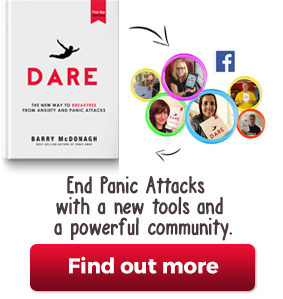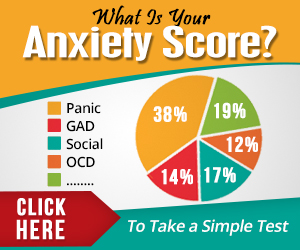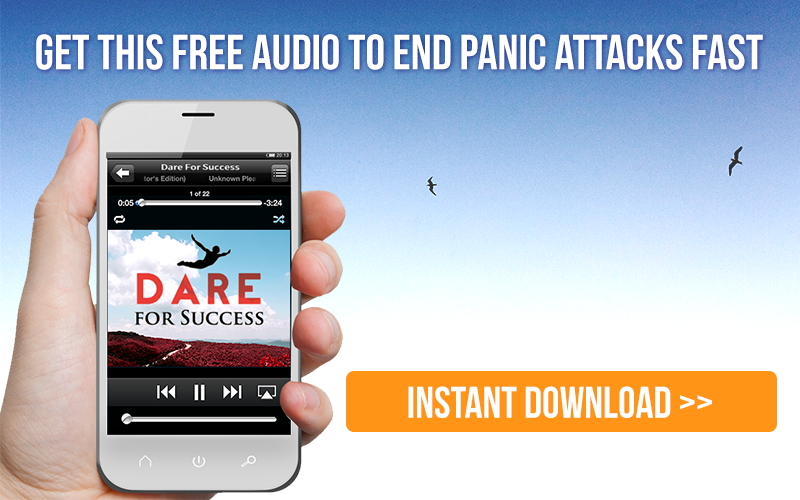Driving Anxiety
One of the more common questions I’m asked is how to cope with anxiety while driving. People have many different fears in this area, ranging from fear of being caught in traffic to crossing waterway bridges.
Often the anxiety stems from a fear of being trapped in the vehicle in gridlock traffic or losing control of the vehicle and causing a collision.
Needless to say, even though they may have been battling a driving phobia for many years, almost all of the people I’ve consulted with have not actually had any of these mishaps occur. Let’s look at the primary fear: having an accident due to the distractions of an anxiety attack while driving.
Most people work themselves into a state of high anxiety even before they’ve pulled out of their driveways. They imagine scenes of causing ten-car collisions on the highway because they “freaked out” and hit another vehicle.
If you have such concerns, the first thing to do is review your driving history. Have you been a reckless driver in the past? Do you have a history of bad driving?
Most phobic drivers actually have clean driving records and have never even been in a minor road incident. Anxious drivers are not a deadly hazard on the road; in fact, they can be a lot more vigilant than many ordinary drivers who, after a long day in the office, are virtually asleep at the wheel.
As we discussed previously when looking at the biology of anxiety, by virtue of their conditions anxious drivers have a high level of sensory alertness. This level of alertness keeps them aware of potential hazards and focused on the task of driving—not daydreaming, chatting, or rooting around in the glove compartment.
This, of course, does not suggest that anxious driving is the ideal way to commute. But I believe it’s important to make this point because so many chastise themselves for being anxious in their cars.
If you’re generally a good driver, before you set out in your car take confidence in that fact, and reaffirm it to yourself. Acknowledging and reaffirming that you’re a capable driver will go some way toward alleviating this concern.
The second major concern of most phobic drivers is the fear of being trapped in the car in some manner. By this, I mean being caught in traffic, on busy three-lane highways, on long bridges, or even stopped at red lights.
When allowed to, your mind will run away with this fear and imagine all kinds of deadly scenarios where you feel cornered or trapped in your vehicle with no assistance available should you experience a major panic attack.
The important thing here is to curb these fears before they take root, by offering yourself viable solutions to any of these scenarios and not letting your mind trick you into believing there’s a trap ahead.
Give it some thought. Are there really any situations, such as the ones described above, where you’re truly trapped with no means of escape?
No, of course there aren’t.
Eventually, traffic always moves; it doesn’t remain gridlocked forever. There’s flow, and there’s always an exit. This may mean figuring out the exit for yourself, but never let these thoughts corner you into thinking that there’s no escape.
When you counteract these fears with logical solutions, you undermine the control that fear holds over you. You begin to see the bluff it’s playing to keep you petrified of what could potentially happen out there in the traffic.
Your mind may rebel and come up with the worst possible scenario that you may get “stuck in”—but again, is this really the terrifying trap you imagined? Be careful not to let these thoughts trap your thinking.
Every minute of the day, people’s cars break down in traffic. These drivers have no option but to put on the hazard lights and leave the vehicle. It’s not going anywhere. There you are, and there’s an exit, albeit an extreme one; however, by using my technique, it never needs to come to that. In fact, you’re going to learn how driving can actually be an enjoyable experience once again.
Learn more about Panic Away here.
Here is a success story of one lady who feared driving far from her home and she now drives over one of the longest bridges in the world.
Recent Testimonials Recorded For Panic Away
Brandie





Sue
Hi Barry,
Thank You for all your support through out the years I still get panic attacks but with you skills you showed me and taught me has helped me control my Panic Attacks.
Thanks again Barry for keeping in touch and always emailing me new information.
Merry Christmas to you and your Family
God Bless You.
Kind Regards
Sue Odrljin
Charlotte Kerr
Hi Barry, i just want to take this opportunity to thank you so very much for the help you have given to me over the years.Your techniques really do work and have helped me through some terrifying episodes since my first major major attack nearly 10 years ago. I still have my moments especially when driving but if I use your fab techniques I survive and work through it!
You truly are a star and I cant thank you enough,
Much love and gratitude,
Merry Xmas,
Charlotte x
Bess
I’ve been called a sensitive by my Dr. and I don’t know if that’s a real diagnosis or not but it is true as an observation, at least. Sometimes it seems like I can feel my cells dividing so that when larger things happen, like twitches or small brain ticks happen, it sets off panic attacks in me. A few years ago, when my nerves were shot and I was diagnosed with a mood disorder, little things started affecting me greatly. I could no longer consume any caffeine at all, for instance, not even the amounts in decaf coffee. I get heart palpitations from it, sometimes a day later. Well, I used to have a cup of coffee before going on a long trip, to keep me awake and that ended up being the worst thing I could do. I’d get palpitations, along with the usual caffeine jitters and increased energy when driving AND I would have a full blown panic attack that would not go away until the affects of the caffeine subsided. Sometimes that could be the entire trip. Because having a panic attack while driving added extra fear, I began to have panic attacks whenever I drove. Sometimes I still do, years later and with that knowledge, though they are usually more manageable. They’re no longer a fear of losing consciousness with my kids in the car, it’s now conditioned in my brain somehow and seems to manifest itself during times of stress.
Jane
Hi Bess. You’re right, caffeine (alcohol and lots of different drugs) are to be avoided at all costs. If you get the physiology right, the healing will start to happen.
Jane
Hi Barry. Just getting your Christmas message was lovely and hearing Brandie was great too. Knowing your not alone is the biggest comfort of all.
Sadly, many of us were forced into this condition by drugs we were not aware of that could cause panic such as caffeine (tea, coffee, coca cola etc), alcohol and things like Flagyl (that’s what it’s called in Australia) which is an antibiotic often prescribed for women with vaginal and urinary tract infections. It causes horrendous panic attacks and that can start a life-long battle with anxiety. It is prescribed for many other infections. I just feel so sorry for people who have had their lives destroyed and they will never know why thinking that there is something wrong with them when it was never them at all. Living a clean life with no caffeine, alcohol or drugs and living with as much fresh veges and water as you can, plus exercise is the best thing in the world and helps enormously. In fact, I believe that getting your diet and exercise right before you start facing anxious situations makes it all SOOO much easier. God Bless you all this Christmas.
sonam
hello.sir.
i have dicided to run a taxi or cab as my proffession to live my livelihood…and am a agrophobia patient….and some time am afraid and its hard for me too drive like normal person..plz help me how to avoid all my negative feelin like caught in traffic , accident ..and to be a good driver…is it safe for me to drive
Jane
Stop drinking/eating ALL caffeine. It causes anxiety/depression and thought and sleep disorders. Also stop using alcohol and as many chemicals as possible. Eg if you can you bi carb instead of toothpaste, don’t wear creams or aftershaves. Everything you put on your body has the potential to have an anxiety causing chemical in it. When I stop all these things (especially caffeine and alcohol) I am a different person. Try it.
Doreen
Hi! I have had anxiety attacks for over 30 years. Driving to places I’m unfamiliar with usually means I won’t go! My youngest son and his wife bought a house in the next state over a year ago and I still haven’t seen it! At this moment, my daughter-in-law is in the hospital giving birth to their first child! I don’t know how I’ll ever make it there! The highway becomes three lanes and at some points you have to quickly go from third lane to the right to get onto another highway! Even with my GPS I’m petrified! I know they understand, but it’s my new grandchild! I’m hoping I don’t arrive ending up in the E.R.! 🙁
Abby
Give up caffeine and alcohol and as many other chemicals as you use and you will get rid of anxiety. You really will. That and the brilliant video Barry sent us where a doctor spoke and said ‘Once you understand that a panic attack is just feeling very uncomfortable, it will get a lot easier’. That has helped me with the left over fear of an anxiety attack.
bao ve yeu nhan
I think the admin of this site is in fact working hard in support of his website,
for the reason that here every material is quality
based information.